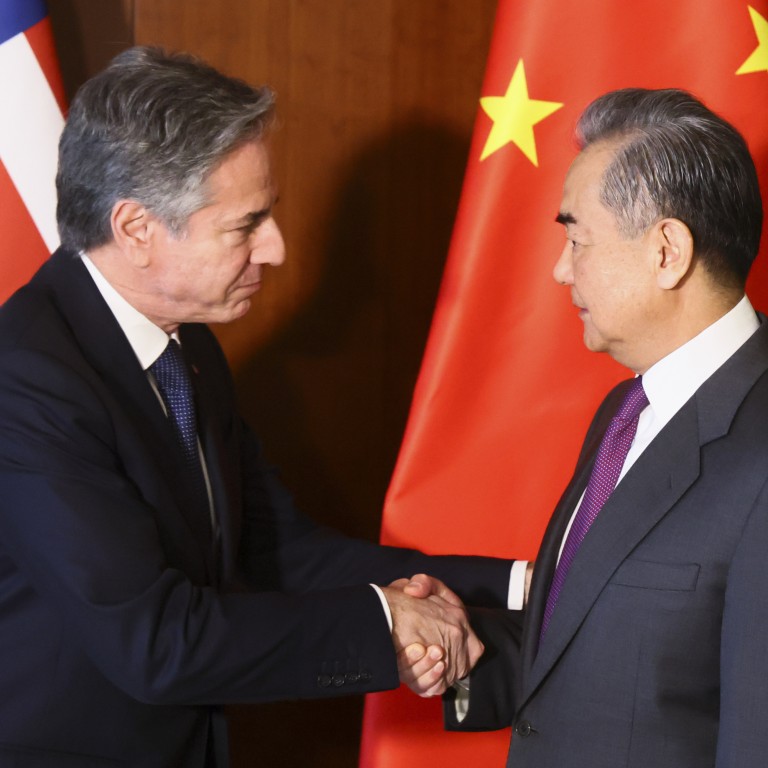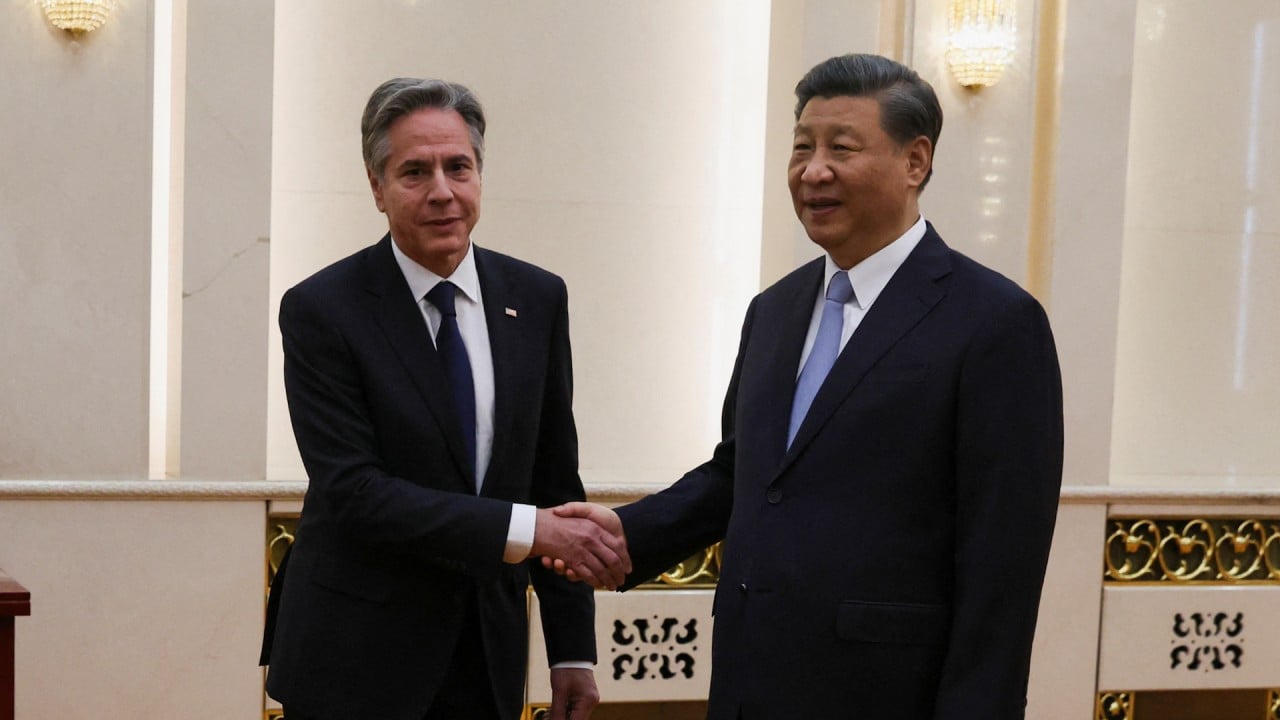
US and China looking for ‘sustainable’ ways to live with each other
- A series of meetings between senior officials offer some hopes that the two sides will be able to get relations back on track
- However, much work is still needed with Beijing pushing Washington to increase people-to-people exchanges
While it is too soon to expect a full reset, the resumption of regular official talks between the rival powers offers some hope that both sides want to avoid conflict and get their deeply troubled relationship back on track.
But those meetings are far from enough to reverse the spiral of hostility and mistrust between the two countries. Backchannel diplomacy and people-to-people exchanges are also badly needed to rebuild trust at a time when the two increasingly view the other side as an existential threat.
Wang Yi pretty much said so himself during his meeting with Blinken in Munich on Friday, stressing the importance of “carrying out people-to-people and cultural exchanges” as well as “exchanges at all levels”.
US national security adviser, top China diplomat to meet in Thailand
It is hardly a coincidence that the Chinese ministers blamed Washington for the lack of adequate unofficial and people-to-people exchanges during talks with their US counterparts in the past week.
According to the official Xinhua news agency, both men raised the issue of the alleged unfair treatment of Chinese nationals, with Wang Xiaohong telling Mayorkas that the US must “stop harassing and checking Chinese students for no apparent reason”.
Wang Yi echoed this, quoting a Chinese proverb that states: “An act of kindness, no matter how trivial, is worth doing, while an act of evil, no matter how small, must be shunned.”
Xinhua explained Beijing’s thinking in a separate article claiming that “these seemingly trivial actions” by the US side could “chip away at the bedrock of bilateral relations”.
A recent study by the Rand Corporation also highlighted the importance of unofficial diplomacy, in helping stabilise US-China ties, many involving incumbent and former government officials, businesspeople, think tanks and others.
“Track 2 dialogues [involving non-governmental figures] in the US-China context have helped to bridge gaps between formal diplomatic discussions and to maintain communications between the two countries even in times of government tensions,” said the study.
While it listed 30 current ongoing dialogues between the two countries, mostly focusing on security and economic issues, the Rand report said there is an essential one that has so far been absent.
“As useful as they are, these dialogues are a necessary but not sufficient step toward achieving a more fundamental long-term equilibrium in the relationship,” it said. The existing dialogues “tend to be long on inspiring rhetoric and short on practical ideas for rationalising the interests of the two sides.”
It warned that the two sides have few common interests beyond issues such as North Korea and preventing an arms race, and added that the lack of agreement on what shape future cooperation would take is troubling.
The report went on to suggest that both sides should start a Track 2 dialogue specifically focusing on a situation in which both countries can fulfil their essential interests while coexisting.
China’s police chief calls for global cooperation on public security at forum
“Despite the high levels of mistrust in the overall relationship, such an initiative could be very timely, taking advantage of the mutual interest in tension reduction mechanisms but doing so in a way that transcends some of the current mistrust by hypothesising medium-term future scenarios,” the report said.
While unofficial diplomacy may not have an immediate impact on government policy, it concluded that the two countries need “a non – zero-sum portrait of a shared future, one with which both great powers can live in a sustainable way” in the next five to 30 years.


